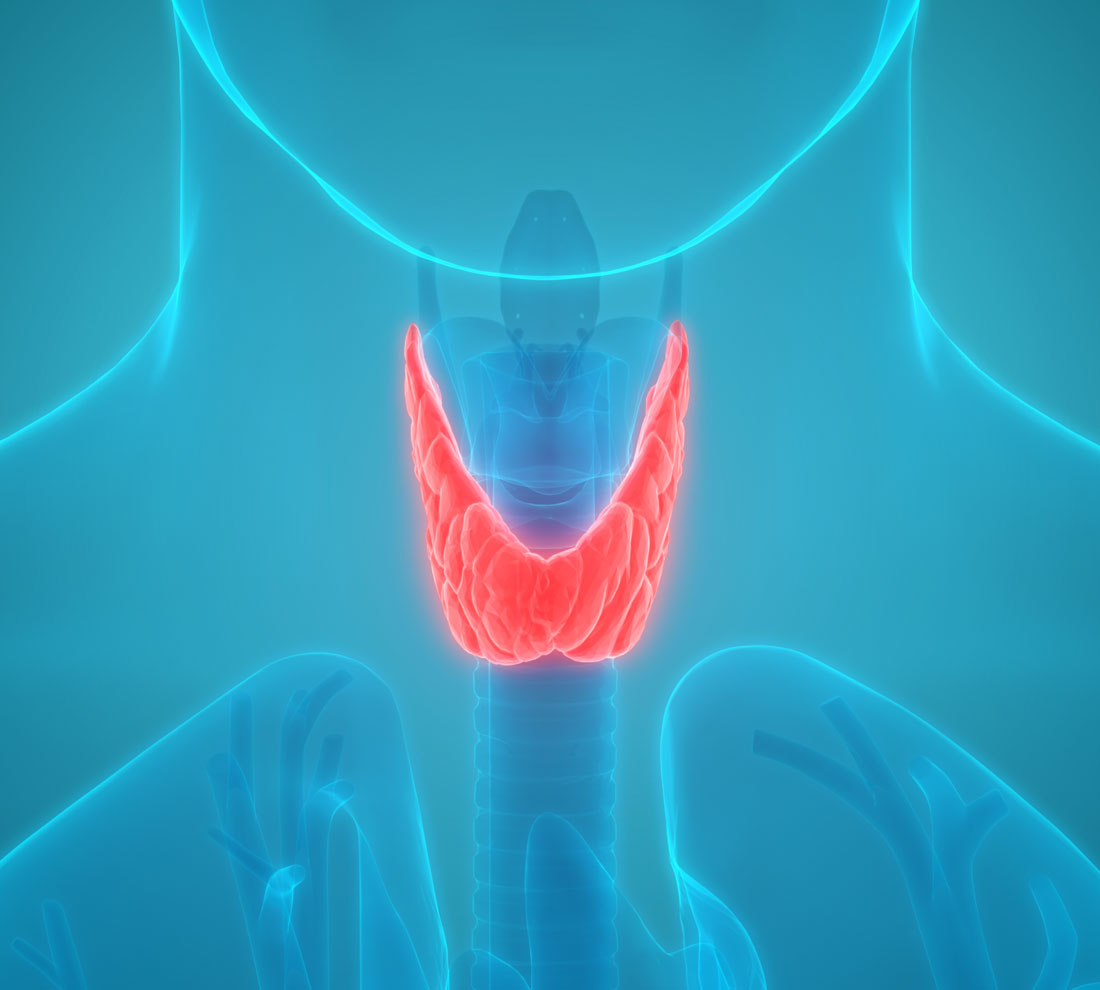Why L-thyroxine alone often does not help
You have to take a closer look at the patient’s situation. L-thyroxine contains only T4 (tetraiodothyronine), which must first be converted in the body into the active form of the thyroid hormone T3 (triiodothyronine). If symptoms of hypothyroidism persist while taking a preparation such as L-thyroxine, this can have various causes. For example, the body may lack important micronutrients that are responsible for good thyroid function. These are so-called cofactors such as selenium or vitamin D. Selenium is important for the aforementioned conversion of the hormone thyroxine (T4, storage form) into triiodothyronine (T3, active form). A proven selenium deficiency can therefore worsen hypothyroidism, even if you are taking medication for it. As a supplement to hormone therapy for Hashimoto’s thyroiditis, we therefore treat our patients with a proven selenium deficiency with 100-300 µg selenium per day. It may also be useful to take zinc. A sufficient supply of iron, magnesium, vitamin C, vitamin E and vitamin B complexes should also be ensured. The administration of vitamin D is also usually advisable. However, it should be emphasized that the deficiency must be proven. Administering food supplements without well-founded measurement and laboratory values is negligent and not expedient.
What does the gut have to do with the thyroid gland?
Intestinal flora also plays an important role in the function of the thyroid gland. A disturbance of the intestinal flora, a so-called “dysbiosis”, influences the immune system and thus also the formation of autoantibodies. In studies, levels of autoantibodies, which can attack and destroy thyroid tissue, were higher the more pronounced the disruption of the bacterial composition in the patients. Another study showed that in more than half of the patients with hypothyroidism, a bacterial overgrowth of the actually low-germ small intestine can also be detected. In the thyroid-healthy control subjects, this incorrect colonization was found in less than 5 percent of cases. Intestinal health, a healthy diet and supporting the microbiome with probiotics are therefore important aspects to consider in the event of thyroid dysfunction or Hashimoto’s.
Combination preparations as a solution
If there is a real weakness in the conversion of T4 into the active hormone T3, taking combination preparations containing both T4 and T3 is an option. Many patients then benefit from the prescription of thyroid extract, which also contains other thyroid hormones. In this case, an individual dosage after eliminating any nutrient deficiencies and balancing the intestinal flora is crucial, depending primarily on the patient’s symptoms.
Human or thyroid gland?
In our practice, we treat people as a whole – and not as an organ that causes symptoms. The thyroid gland is embedded in the body’s highly complex regulatory mechanisms. Observing and analyzing these takes considerably more time than prescribing you L-Tyroxin. We take this time.


